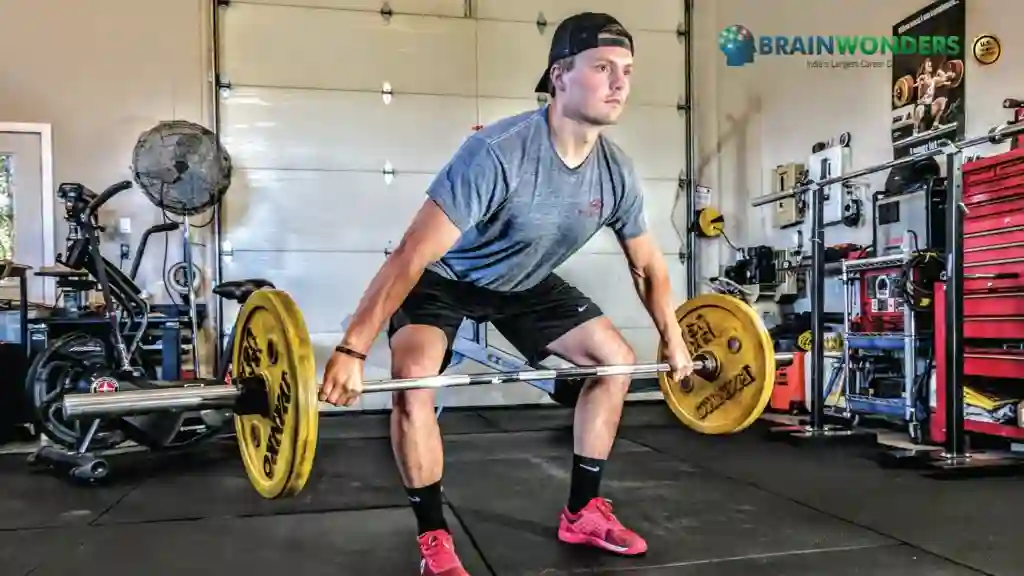Diploma in Physiotherapy (D.P.T.) - Course, Fees, Eligibility, Top Colleges, Top Careers
Course Description
DPT (Diploma in Physiotherapy) course instructs the candidates to boost execution of human movement, empower patients to accomplish ideal freedom in physical development, movement and capacity, actualize proof based systems to oversee disorders of the human body for individuals of all age , give treatment, preventive guidance, and care, restore those with physical and mental impairment and augment customers' practical capacities for a healthy life.
Reasons to Pursue a Diploma in Physiotherapy
Individual aspirations and goals influence the decision to pursue a Diploma in Physiotherapy. Some compelling reasons to consider this course are outlined below:
- Addressing Severe Personnel Shortage: The World Health Organization (WHO) recommends a minimum ratio of 1 Physiotherapist per 10,000 people. However, reports indicate that only 5000 qualified physiotherapists are in India, resulting in a significant shortage of 95,000 professionals. Pursuing the diploma presents a valuable employment opportunity in the field of physiotherapy.
- Part of a Thriving Industry: India's healthcare sector is projected to grow rapidly at 16-17%, offering promising prospects for individuals in the industry. Physiotherapists are increasingly sought after in various domains, including healthcare and hospitality, and in sports industries, where they serve as rehabilitation specialists for athletes.
- Attractive Compensation: Physiotherapists in India are in demand by hospitals, nursing homes, and care centres, earning an average salary of INR 300,000 annually. Additionally, they may enjoy benefits such as medical insurance, dearness allowance (DA), provident fund (PF), and travel expenses.
- Contribution to Rehabilitative Medicine: Physiotherapy is vital in rehabilitative medicine, employing physical therapy, exercises, massages, and movements to improve and treat injuries, diseases, and deformities.
- Acquiring Comprehensive Skills: Pursuing the diploma equips students with scientific knowledge, problem-solving abilities, technical skills, and effective communication skills to interact empathetically with patients.
- Staying Updated with Advancements: The course ensures that candidates remain up-to-date with the latest developments in the field, providing a competitive edge in their careers.
- Entrepreneurial Opportunities: Graduates have the opportunity to establish their physiotherapy clinics, offering services that can earn them between INR 200 to 1000 per session.
Diploma in Physiotherapy: Admission Process
The admission process for a Diploma in Physiotherapy varies depending on the educational institution offering the program. However, here is a general overview of the typical steps involved:
- Eligibility Criteria: Check the eligibility requirements set by the institution. Generally, candidates must have completed their 10+2 or equivalent examination from a recognized board with a minimum percentage in relevant subjects like Biology, Physics, and Chemistry.
- Application Form: Obtain the application form online or from the institution's admission office. Fill out the form with accurate personal and educational details.
- Entrance Examination (if applicable): Some institutions may conduct an entrance examination to assess the aptitude and knowledge of applicants. The syllabus for the entrance exam usually covers subjects like Biology, Physics, Chemistry, and General Knowledge.
- Merit List: After evaluating the applications and, if applicable, the performance in the entrance examination, the institution will prepare a merit list of eligible candidates.
- Counselling or Interview: Shortlisted candidates may be called for counselling or an interview to assess their suitability for the program further. The counselling session provides an opportunity to understand the course structure and career prospects and address any queries.
- Seat Confirmation and Fee Payment: Selected candidates will receive an admission offer or an allotment letter. Candidates must pay the required admission fee within the specified deadline to secure the seat.
- Document Verification: On the program's commencement date or during orientation, candidates will be required to present original documents for verification purposes.
- Commencement of Classes: Once the admission process is complete, the classes for the Diploma in Physiotherapy will begin on the scheduled date.
Typical day at work
Frequently Asked Questions
1. Which is better, BPT or DPT?
Answer: The choice between BPT (Bachelor of Physiotherapy) and DPT (Diploma in Physiotherapy) depends on individual preferences and career goals. BPT is a full-fledged undergraduate degree program, usually spanning four and a half years, while DPT is a diploma course with a shorter duration, typically one to two years. BPT offers a comprehensive and in-depth study of physiotherapy, covering various aspects of the field, and is more suitable for individuals seeking advanced knowledge and career opportunities. On the other hand, DPT can be a good option for those looking for quicker entry into the workforce and basic knowledge in physiotherapy. Both courses have their merits, and students should consider their interests and long-term career objectives before deciding.
2. Who is eligible for DPT?
Answer: To be eligible for DPT (Diploma in Physiotherapy) in India, candidates need to fulfil the following criteria:
- Completing the 10+2 examination or its equivalent in the Science stream from a recognized education board.
- A minimum aggregate score of 45% or more in the qualifying exam, with subjects such as Physics, Chemistry, Biology, and Mathematics.
The specific eligibility criteria may vary among different institutions, so applicants should verify the requirements set by the college they wish to apply to.
3. What are the fees for a DPT course in India?
Answer: The fees for DPT (Diploma in Physiotherapy) courses in India can vary depending on the institution and location. On average, the tuition fees for DPT programs range from approximately INR 50,000 to 2,00,000 per year. However, it is important to note that the fees can differ significantly among colleges, so prospective students should check the individual college's official website or contact the admission office for precise and up-to-date information on the course fees.
4. What is the salary of a DPT physiotherapist in India?
Answer: The salary of DPT (Diploma in Physiotherapy) graduates in India can vary based on experience, location, employing institution, and industry demand. On average, entry-level DPT physiotherapists in India can earn a starting salary of approximately INR 2,00,000 to 4,00,000 annually. With experience and specialization, the salary can increase over time.
5. Which type of physiotherapist is best?
Answer: The "best" type of physiotherapist depends on the context and the specific needs of patients. Physiotherapy is a diverse field with various specializations, each focusing on specific areas of treatment and patient populations. Some popular physiotherapy specializations include Musculoskeletal Physiotherapy, Neurological Physiotherapy, Cardiopulmonary Physiotherapy, Pediatric Physiotherapy, and Sports Physiotherapy, among others. The "best" physiotherapist is well-trained, experienced, and skilled in their chosen specialization, providing effective and compassionate care to their patients. Patients must seek physiotherapists with expertise in addressing their particular condition or requirements to ensure optimal treatment outcomes.
Eligibilty
The eligibility criteria for aspiring candidates pursuing a Diploma in Physiotherapy are straightforward and can vary from one institute to another. Here are the common requirements:
- Educational Qualification: Candidates must have completed the 10+2 examination or its equivalent in the Science stream from a recognized education board.
- Minimum Aggregate Score: To be eligible for the DPT course, candidates must secure a minimum aggregate score of 45% or more in the qualifying exam. The subjects considered for the aggregate calculation typically include Physics, Chemistry, Biology, and Mathematics.
- Entrance Exam (in some cases): While not mandatory for all colleges, a few institutes may require candidates to appear for an entrance exam as part of their admission process.
Diploma in Physiotherapy: Admission Process
The admission process for the Diploma in Physiotherapy is primarily based on the merit list, while some institutes may also conduct Personal Interviews and Group Discussions. Below are the steps involved in the admission process:
- Eligibility Check: Candidates must visit the colleges' official websites to verify the course's eligibility criteria.
- Registration: Institutes announce registration dates in advance. Candidates must create an account on the college's website and provide basic details like email-id, phone number, etc.
- Application Form: Fill in all the necessary information in the application form. It is vital to ensure that all details are accurate and correct.
- Document Submission: Scan and upload the required documents, such as 12th-grade mark sheets, per the specific format specified by the institute's application portal.
- Application Fee: During the submission of the application form, candidates need to pay a minimal application fee.
- Counselling and Admission: Counseling sessions are held for students who have cleared the entrance examinations or interviews. After successful counselling, candidates can proceed with the admission process for the Diploma in Physiotherapy.
Diploma in Physiotherapy: Future Scope
| Diploma in Physiotherapy | Future Scope | Average Salary (in Rupees) |
|---|---|---|
| Musculoskeletal Physiotherapy | Work in hospitals, clinics, or sports clubs as a physiotherapist specialized in musculoskeletal conditions and injuries. | 2,50,000 - 4,00,000 |
| Neurological Physiotherapy | Opportunities in rehabilitation centers, neurology departments of hospitals, or community health centers to treat patients with neurological disorders. | 2,00,000 - 3,50,000 |
| Cardiopulmonary Physiotherapy | Employment in cardiac rehabilitation centers, respiratory care units, or critical care units, providing specialized physiotherapy to patients with heart and lung conditions. | 2,50,000 - 4,50,000 |
| Pediatric Physiotherapy | Work in pediatric hospitals, schools, or private clinics, focusing on providing physiotherapy to infants, children, and adolescents with developmental issues or injuries. | 2,00,000 - 3,50,000 |
| Geriatric Physiotherapy | Career opportunities in geriatric care facilities, nursing homes, or home health agencies, catering to the elderly population's physiotherapy needs. | 2,50,000 - 4,00,000 |
| Sports Physiotherapy | Opportunities in sports academies, fitness centers, or as part of sports teams to provide physiotherapy services to athletes and sports enthusiasts. | 2,50,000 - 4,00,000 |
| Orthopedic Physiotherapy | Employment in orthopedic clinics, hospitals, or private practices, specializing in the rehabilitation of musculoskeletal injuries and post-surgical patients. | 2,50,000 - 4,00,000 |
| Community Physiotherapy | Work in community health centers, outreach programs, or NGOs, focusing on providing physiotherapy services to underserved populations. | 2,00,000 - 3,50,000 |
| Industrial Physiotherapy | Employment in industries or corporate settings, addressing work-related injuries and designing ergonomic solutions to promote employee health and safety. | 2,50,000 - 4,00,000 |
| Wome |
Colleges




